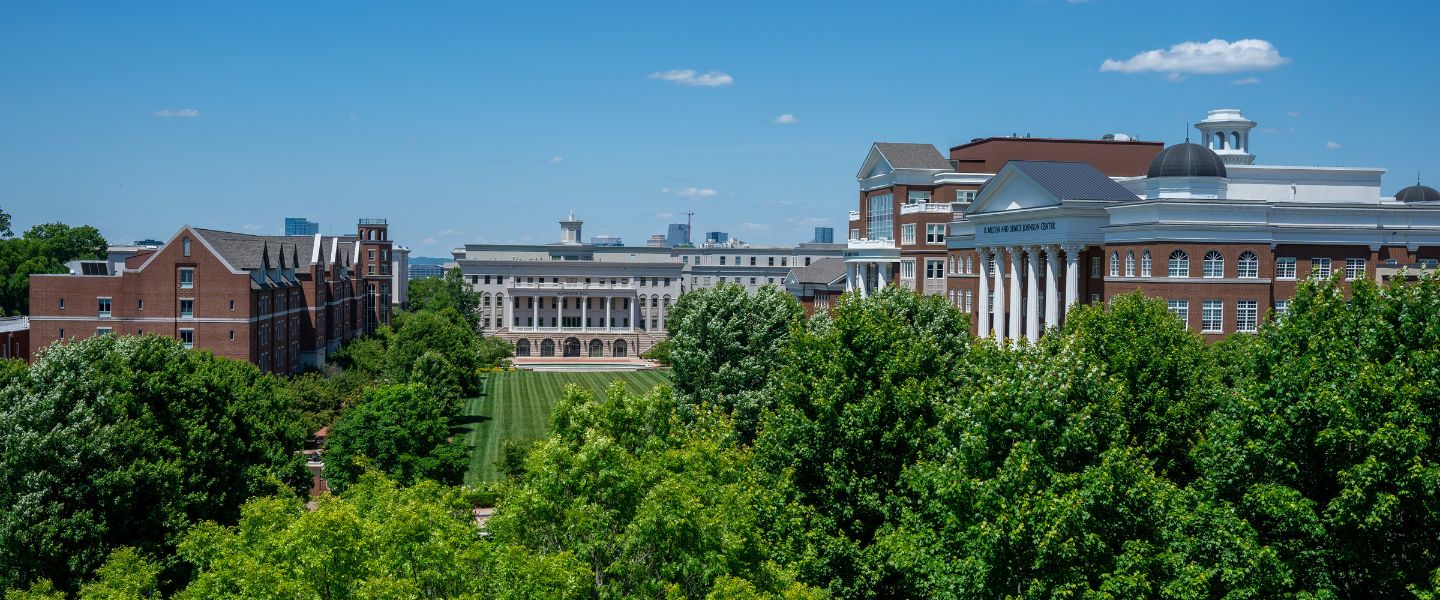Service-Learning at Belmont University
“The opposite of poverty is not wealth; the opposite of poverty is justice.”
—Bryan Stevenson
At Belmont University’s College of Pharmacy and Health Sciences, the Department of Public Health is putting justice into action through a powerful approach to education: service-learning.
Between 2022 and 2024, students enrolled in Public Health courses dedicated 448 hours to local nonprofits, working alongside community partners to address pressing issues such as food insecurity, housing instability and access to care. According to the Independent Sector’s 2025 Volunteer Report, those hours represent an estimated $13,686.40 in community value — demonstrating the tangible impact of Belmont students' time, compassion and dedication.
But the true value of these experiences cannot be measured in dollars alone. For students and faculty alike, service-learning represents a transformative integration of academic rigor, ethical leadership and community engagement.
Learning Beyond the Classroom
Service-learning is embedded into key courses like Social Determinants of Health and Population Health, led by Drs. Laurie Gavilo-Lane, Marquinta Harvey, Frecia Gonzalez and Emmanuel Akowuah. These courses bridge theory and practice by placing students directly into the communities they study.
“Service-learning doesn’t just teach students about public health—it prepares them to be reflective, engaged citizens who serve with intelligence, compassion and integrity,” explains Dr. Harvey.
Through structured community service projects, class discussions, critical reflection assignments and peer presentations, students don’t just learn about health disparities—they experience their implications firsthand. They collaborate with nonprofit organizations such as Second Harvest of Middle Tennessee, The Store, The Branch and Open Table Nashville, supporting efforts ranging from food distribution to health education to community advocacy.
Real-World Impact
Each partnership benefits both students and the community. Students report gaining essential skills — cultural humility, critical thinking, teamwork — while deepening their understanding of health inequities. One student, Yusuf Fakhruddin, reflected, “The strongest way to understand pertinent topics such as food insecurity and education is by having direct conversations with those who are impacted the most.”
Other students shared similar sentiments:
- “This project helped me connect classroom content to real-world issues and strengthened my commitment to providing compassionate and culturally aware care as a future physician.” —Lizbeth Martinez-Peña
- “We ended up passing out grocery carts of food to over 160 cars… This project showed me that smaller organizations can make an impact in the community, but there are systemic changes that must occur.” —Brooklynn Crane
- “Even the simplest interactions can help someone out. Just creating Valentine’s Day cards or playing soccer meant so much to the kids we served.” —Ashley Rivera
Community partners, in turn, benefit from the support, advocacy and visibility that student volunteers bring to their missions.
Preparing the Next Generation of Public Health Leaders
Belmont’s mission calls for students to lead with intelligence, compassion, courage and faith — a calling that service-learning answers directly.
“These experiences build more than academic knowledge,” says Dr. Gonzalez. “They cultivate empathy, cultural awareness and ethical reasoning — essential traits for the next generation of public health professionals.”
Students echo this development in their reflections:
- “Service has taught me that passionate people who work collaboratively can foster change.” —Christina Sandoval
- “I plan to continue serving throughout my lifetime… There is no other incentive other than that. Helping people refreshes my soul.” —Kaylee Knaack
- “I learned that the world beyond the classroom is quite large—and sometimes overwhelming—but connecting with real people made that world more tangible and meaningful.” —TaMya McHaney
Through service-learning, Belmont students are not just studying public health—they are becoming public health advocates, change agents and servant leaders.
Learn More
Learn more about the program in this story

